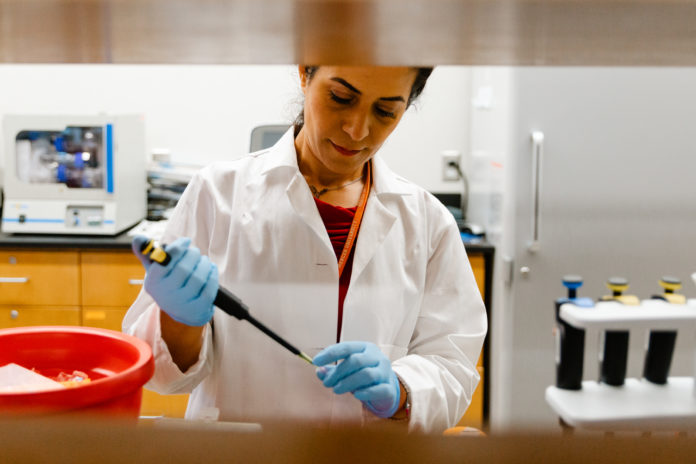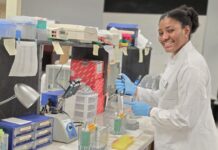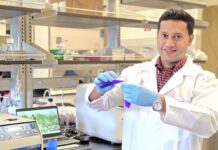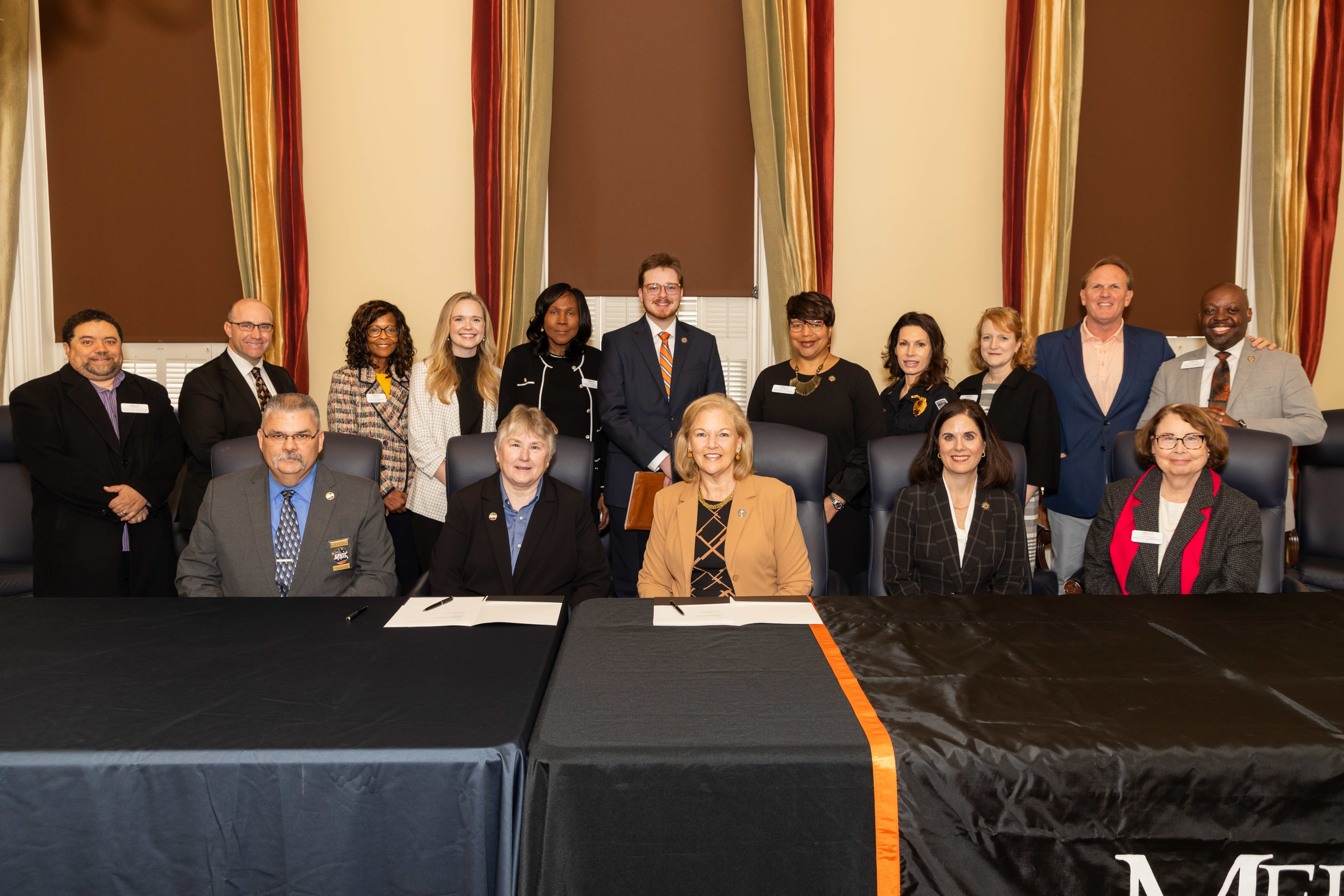A Mercer professor is part of an interdisciplinary research team that has developed a device that can test for COVID-19 at earlier stages and provide instant results.
Dr. Sahar Hasim, an assistant professor of biology whose research specializes in microbiology and immunology, became involved in this Auburn University project in mid-2020 and continued after joining Mercer’s faculty later that year.
Auburn researchers include engineering professors Dr. Masoud Mahjouri-Samani and Dr. Michael Hamilton; physics professor Dr. Marcelo Kuroda; engineering graduate students Parvin Fathi-Hafshejani and Nurul Azam; and physics graduate student Lu Wang. The team recently published a study, titled “Two-Dimensional-Material-Based Field-Effect Transistor Biosensor for Detecting COVID-19 Virus,” in the American Chemical Society journal ACS Nano.
“We are really excited to publish our findings in this high-impact journal,” Dr. Hasim said. “It was great to work with the team at Auburn University. It was a great opportunity.”
The biosensor electronic device they developed uses two-dimensional material — nanomaterials that are only a few atoms thick — with an antibody added to its surface. A sample containing COVID spike protein is dropped on top of the device’s sensor for fast recognition and response.
“That antibody is specifically recognizing one protein, one antigen,” said Dr. Hasim, who focused on the biology portion of this study. “If you have the coronavirus on the top surface, it sends a signal to say, ‘I found something.’ If it’s something else, another virus that does not have the spike protein, it’s not going to bind with the antibody that we put on the top surface of the material, and it won’t generate the signal.”
“It’s like a lock and key. The antibody is the lock, and the key is the protein. If it does not fit, it will not generate the electrical signal in the device.”
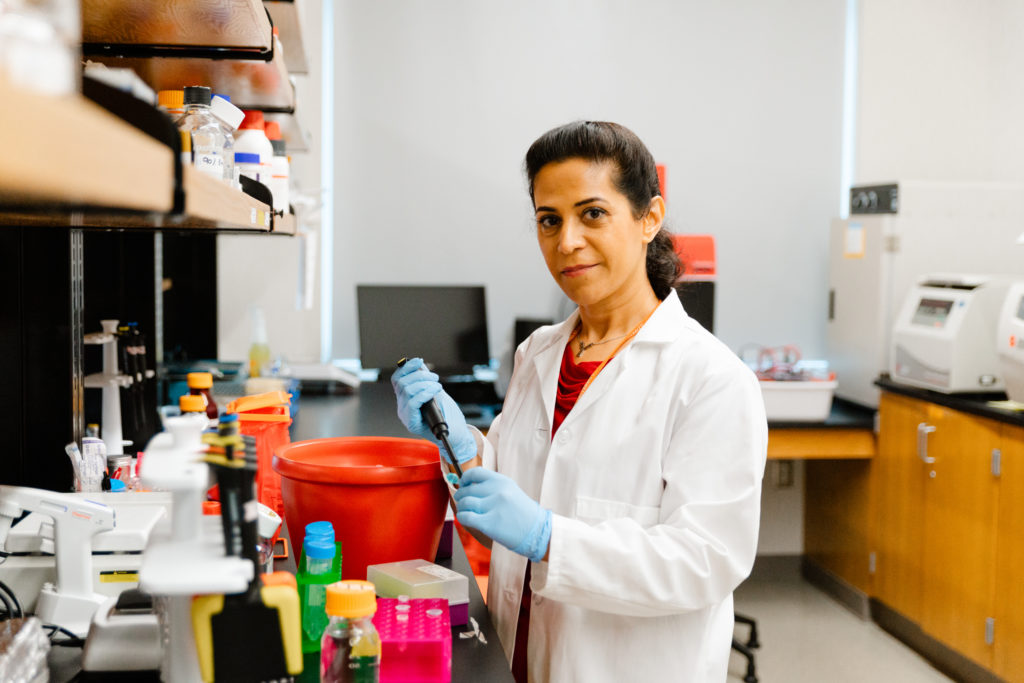
The current COVID-19 tests by nose swab require a large amount of the virus to be detected, so the virus has already multiplied within the body by the time a positive test is revealed. Blood sample testing also comes too late in the game. It detects the antibodies that the immune cells are secreting, and a positive test means the virus has already entered into the host cells.
“This new device is very fast and sensitive,” Dr. Hasim said. “It can detect the virus at the earlier stage when it has not spread and multiplied inside our host. If we can detect it at the early stage, then we can stop it from spreading and hopefully stop the pandemic.”
A consumer product version of the device would be easy to use. The idea is that anyone could buy the product and do their own test at home.
Right now, the team is working on the synthesis of the 2D material so that the device can be mass-produced.
“We can make the device in the lab scale, but we are not able to commercialize it yet,” Dr. Hasim said. “If we can overcome the obstacle with making the material, we can make it commercial and more available to everyone.”
Once the 2D material can be synthesized, the testing device has the potential to be functionalized with other antibodies to detect other infectious diseases as well.
“We can functionalize it with the antibody to recognize a specific antigen. It’s not just for COVID-19; it can be broader,” Dr. Hasim said.
Dr. Hasim has Mercer students involved in another 2D material project, studying how to use it to coat medical devices to inhibit the growth of bacteria. One of her students, Hunter Tinker, went to Auburn a few weeks ago to work with one of the graduate students on the creation of these materials.

